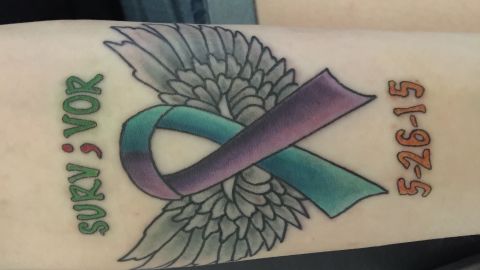n n
n n
n n
n n
- n
- Regular relaxation Bound to frustrate someone who suffers from severe anxiety I know, but I am talking about doing this at a time when you are not anxious, or less anxious compared to the times when it becomes a problem. Take advantage of those times by purposely finding a way to feel even calmer, ideally every day for 10-15 minutes. When someone suffers from consistent anxiety in whatever form then it is so important to regularly calm the mind and body, not just for the immediate effect but more importantly to allow the anxiety to feel less severe and prolonged at those times when it is present, because the mind and body is better able to cope. It is likely you might still have negative thoughts or emotions coming in to your mind when relaxing and that will reduce over time, the more regularly it is done. Meditation or mindful awareness is good if you don’t have an excess of mental chatter otherwise have something to focus on such as doing a body scan; focusing your awareness on your muscles in different parts of your body, tensing and releasing them in turn and/or breathing exercises. Listening to a hypnosis download is also good or doing yoga or something similar although it might be harder to keep this up on a daily basis. Regular relaxation is best looked at as an essential part of helping you reduce the anxiety, setting aside time for it as you would set aside time to eat or see a friend.
- Interrupt the anxiety To do this it’s helpful to see that the anxiety is a process and that you can look at it as a separate part of you. First try and be really conscious of what triggers the anxiety; it is usually something external to you such as doing, hearing or seeing something before an unwanted thought or emotion then comes in to play. Once you can see its process you can take the power to interrupt it, to deflect it off its course, right at the beginning and at a later stage in it’s process if needed. Think of the anxiety like an overeager puppy or kitten that’s getting too excited, all it needs is to be noticed or it’s attention diverted and it will calm down. An interruption can be anything but typically the most helpful is something you create inside your mind using as many of your senses as possible. I recently read an example I liked; at the point you want to interrupt the anxiety create a big red stop sign in your mind, with an equally bold sound, quite possibly something amusing and combine that with a thought such as ‘leave now’ or something else that works for you. To make it more effective you can simultaneously pinch yourself or press your forefinger and thumb together. Other useful interruptions include physically doing something different and/or change your routine.
- Establish the positive intent There is a presupposition in NLP that every behaviour has a positive intent for the one who is doing the behaviour. This can be a difficult idea to swallow when we think of some of the terrible behaviours that humans exhibit or commit yet for our purposes it can be very helpful. This idea means that on some level the anxiety that is causing such distress has a positive intention for you, the doer. To find this you typically need to go back to when it first started and look at what was going on. Ask yourself what was helpful about that behaviour for you at that time? How was it serving in your interest? Quite often the anxiety has morphed or changed to become something different to the circumstances it originated from, however the positive intention is still there, it’s just not serving it’s purpose any more. Ironically quite often this original intention was to keep you safe or secure or in control. Once you have found this often illuminating and helpful piece of the jigsaw it is easier to then come alongside the anxiety and see it as a friend that doesn’t need to be there anymore, that has outlived it’s purpose. I have written more about this ‘positive intent' here.
- Keeping a routine The biggest challenge for those who have anxiety is usually to feel in control. Feeling out of control is what anxiety is really all about and so taking any opportunity to feel in control is an important strategy to help manage and reduce the anxiety. An easy way of doing this is keeping to a routine, that supports and helps you feel in control whilst still allowing you to make choices and have flexibility in the way you live your life. Typically this will involve sticking to regular waking and sleep times, irrelevant of how much sleep you might get and eating at regular times and having certain activities or interests that you can schedule in at certain times of the week. It can also be doing things like arranging to speak to a friend at a specific time each week.
- The AWARE technique This takes into account some of the points I raised when I discussed interrupting the anxiety. This is a great process that when followed consistently has a powerful impact on reducing the anxiety when it actually happens.
- <p style="\"font-family:" verdana,="" arial,="" helvetica,="" sans-serif;="" line-height:="" 16px;="" \"="">Accept the anxiety– decide just to go with the anxiety. Fighting anxiety, getting angry or scared just fuels the fire.
n Watch the anxiety– observe it without judging it to be good or bad. Try and see that there is you and then there is the anxiety.
n Act normal– Behave normally and continue doing what you intended to do. Breathe normally focussing on extending the out breath.
n Repeat the steps– Continue going through the above steps until it goes down to a comfortable level.
n Expect the best- What you fear may never happen. Be curious about how well this technique can work if you give it enough focus and attention. nn
n
n
n
n
n
n
n







Very nice advice. Thank you!
Thanks for the feedback, I\'m glad you found it helpful. I am writing another one which will be up here soon 🙂
My problem is that I cant find anything that triggers mine except hormones. Idk, weird …